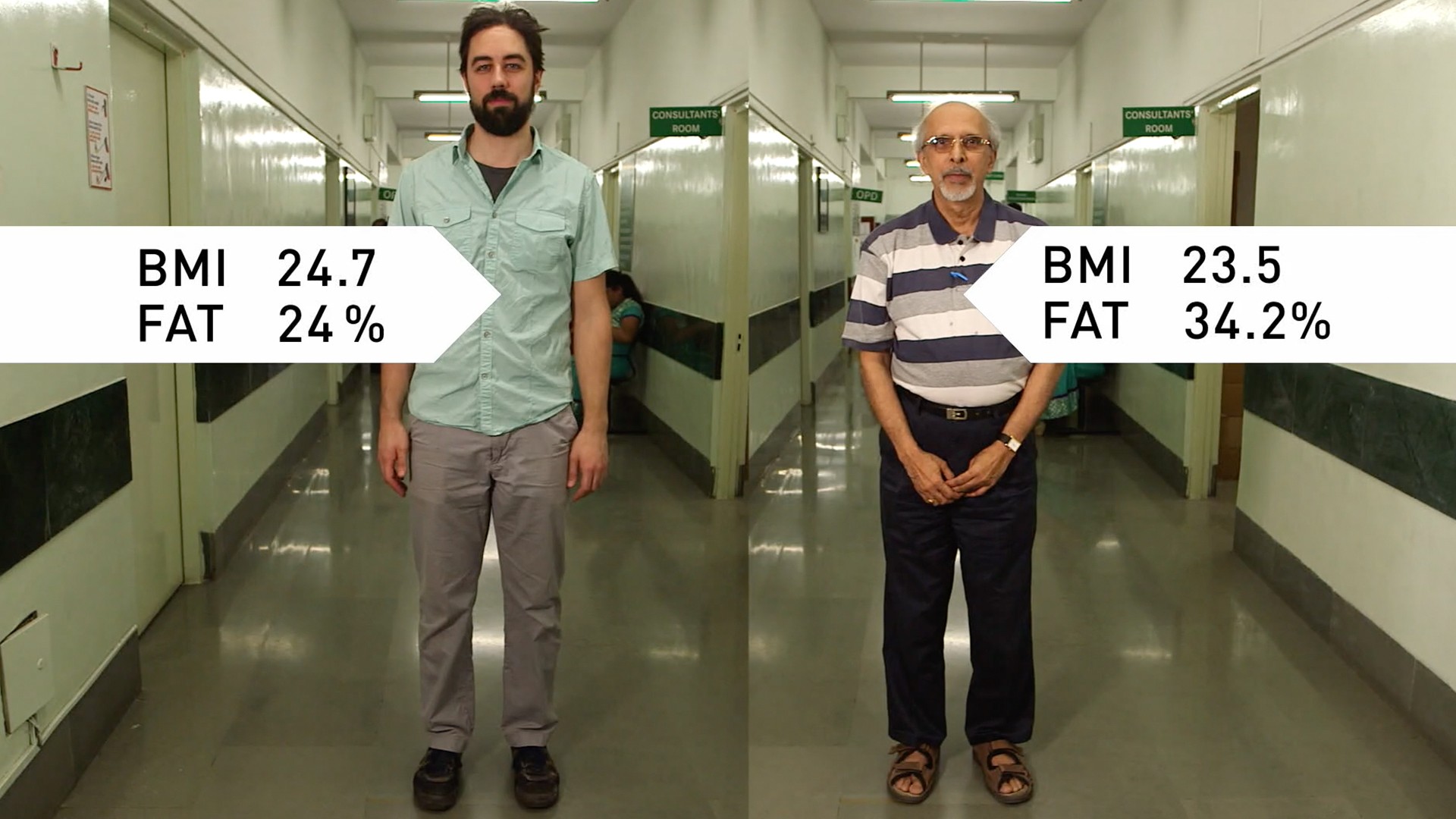Journals
It's no secret that Americans are overweight: more than two-thirds are considered overweight or obese; most, in fact, are too fat to donate their bodies to science. The problem is so widespread that apparently it's even affecting our stereotypes. According to a new study, Asian-Americans who appear heavier were seen as more "American"—and may even experience less prejudice related to their perceived "foreignness" than their thinner counterparts.Researchers at the University of Washington intended to examine stereotypes, particularly those around American identity. To do so, they showed photographs of men and women of different ethnicities (white, black, Latino, and East or Southeast Asian) to nearly 1,300 Americans, most of whom were college students. The photos, collected from online databases, were edited to create thinner or heavier versions of each subject; specifically, giving the subjects a body mass index less than 25 or more than 25, the dividing line for being overweight. Participants then answered questions about the people in the photos, including how likely the person was to have been born outside the US or speak English as a native language."There is a strong bias associating American identity with whiteness, and this can have negative consequences for people of color in the US," Caitlin Handron, a doctoral student at Stanford University who conducted the study while at the University of Washington, said in a statement. "We wanted to see whether ideas of nationality are malleable and how body shape factors into these judgments."Overall, people rated white and black subjects as significantly more American than Latino or Asian subjects. Weight did not affect how "American" the raters thought the white, black, or Latino subjects were. Heavier Asian-Americans, however, were more likely than those of a normal weight to be perceived as "American" and to be in the US with documentation. Participants' race didn't significantly affect their perceptions about Asian Americans.While Americans in general have a weight problem, Asian-Americans tend to be less obese than other ethnicities, with an obesity rate of 11.7 percent, compared to 34.5 percent among white Americans, 42.5 percent among Latino Americans and 48.1 percent among black Americans, per the Centers for Disease Control and Prevention. The authors also note that Asian immigrants are significantly less likely to be overweight than Asian people born in the US.
Watch more from Motherboard:
The stereotype is that people from Asian and South Asian countries are thin and Americans are heavy; the authors say the results support their theory that people believed to be from other, stereotypically thin countries (or countries that aren't thought of being overweight), are seen as more American if they're heavy. So For Asian people, greater weight can "signal" an American identity, they wrote.The research suggests a possible (and twisted) benefit for heavier Asian-Americans, although it likely exists alongside weight bias. "People in the U.S. often encounter prejudice if they are overweight -- they may be mistreated by a customer service person, for example, or a health care provider. Weight can be an obstacle to getting good treatment," Sapna Cheryan, a University of Washington associate professor of psychology and a co-author of the study, said in a statement. "We found that there was a paradoxical social benefit for Asian-Americans, where extra weight allows them to be seen as more American and less likely to face prejudice directed at those assumed to be foreign."Handron said the results are a call for more representation of Asian-Americans in the media. "The lack of representation of Asian Americans and other people of color in the media and positions of power reinforces associations between American identity and whiteness," she said. "This work supports the call to recognize these inaccurate assumptions in order to interrupt the resulting harm being done to these communities."Related:Your Race Matters a Scary Amount When it Comes to Heart RiskBeing Born in the Wrong Zipcode Could Take 20 Years Off Your LifeMedical Studies Still Exclude People of Color
Advertisement
Advertisement
Watch more from Motherboard:

The stereotype is that people from Asian and South Asian countries are thin and Americans are heavy; the authors say the results support their theory that people believed to be from other, stereotypically thin countries (or countries that aren't thought of being overweight), are seen as more American if they're heavy. So For Asian people, greater weight can "signal" an American identity, they wrote.The research suggests a possible (and twisted) benefit for heavier Asian-Americans, although it likely exists alongside weight bias. "People in the U.S. often encounter prejudice if they are overweight -- they may be mistreated by a customer service person, for example, or a health care provider. Weight can be an obstacle to getting good treatment," Sapna Cheryan, a University of Washington associate professor of psychology and a co-author of the study, said in a statement. "We found that there was a paradoxical social benefit for Asian-Americans, where extra weight allows them to be seen as more American and less likely to face prejudice directed at those assumed to be foreign."
Advertisement